Festival drama peels layers of character who isn't there
Updated: 2016-05-09 08:02
By Raymond Zhou(China Daily)
|
|||||||||
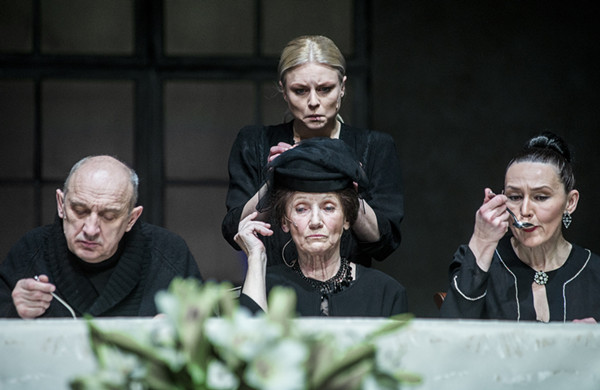 |
|
Heroes' Square is one of the foreign productions presented during the Tianjin theater festival.[Photo provided to China Daily] |
Heroes' Square (Heldenplatz), as presented by Lithuanian National Drama Theatre at the Third Tianjin Caoyu International Theater Festival, is a polarizing piece that mesmerized some and bored others.
At four hours long (not counting two intermissions), the play does not contain much dramatic conflict. The first act, which lasts 90 minutes, has the memorable action of ironing and folding a shirt, as some in the audience joked.
The hero of the play, Professor Josef Schuster, jumped to his death shortly before the curtain rose. He made his only appearance when he was lit from behind a screen at the end of Act I, doing nothing but folding a shirt.
Some would call him a perfectionist while others see him as a potential tyrant. He is the subject of this measured and calculated character study-of a character who is mostly absent from the stage yet increasingly comes into relief as each onstage character reminisces about him.
As an alter ego of the playwright Thomas Bernhard, Josef vents his anger and frustration onto Vienna, or the world at large. He declares the city "worse in 1988 than 50 years ago" when Hitler annexed Austria. He sees almost everyone as a Nazi.
When his brother, Robert Schuster, rants on about the state of affairs of the city, they obviously share political inclinations, but we are told Robert is much nicer in disposition.
It may be an irony that the more the brothers, or the playwright, take on Vienna as the hotbed of evil, the more sympathy audience members in the Tianjin Grand Theater showed for the Austrian capital.
Many who have visited it recalled their favorable impressions. "What place on Earth can the protagonist stand if he cannot even stand Vienna?" some asked.
I was not impressed with the vitriolic barbs thrown at the city. The freedom to express such views, no matter how biased, does not equal artistic ingenuity.
In arts and literature, what you say could be less important than how you say it. Otherwise, shouting slogans would be the highest form of art.
As for the possible relevance for the audience, I don't think Bernhard or director Krystian Lupa had China in mind when they first broached the topic.
What fascinated me is this absent character who grows larger with each person's narration. He did not love flowers or cats, nor his own children. He did not care about his wife.
He seemed to be torn by the hatred he had for everyone and everything. The only sliver of compassion he displayed was for his housekeeper, who seemed to sing his eulogy with clenched teeth.
However, there is a touch of Hamlet in Bernhard's professor. The way he listed the evils of the world before his suicide is a reminder of "the whips and scorns of time, the oppressors' wrong, the proud man's contumely, the pangs of despised love, the law's delay, the insolence of office", etc, when the prince of Denmark contemplated "making his quietus with a bare bodkin".
The pessimistic streak that underpins his worldview also runs through his relationships with those closest to him, not unlike Hamlet's with Ophelia.
Lupa added method to Bernhard's madness, if madness is stretched to imply anger. Within the cloistered space of the stage, the balance is often tipped by actors' movements that are concentrated in one corner.
The crowd noise from the titular square acts as the oppression of the populace, who are deemed stupid and blind. When the historical recording of Hitler's speech and mass cheering shattered the Schusters' window glasses, the message came loud and clear.
Heroes' Square is one of many imported theatrical productions the audacious Tianjin festival is presenting this season. It was staged on May 3 and 4.
Others include Richard III directed by Thomas Ostermeier and (A) pollonia by Nowy Teatr of Poland. The festival runs through July.
Related Stories
"Ma Lan Hua Kai" stages drama in Changchun 2016-05-05 16:50
Baotou children's drama festival opens 2016-05-05 14:47
Kiss scene in Korean drama 'boosts' car interest 2016-04-22 07:50
Peking Opera drama debuts in Taiwan 2016-04-20 14:17
Today's Top News
Testing times
Big hopes as China hosts the G20
Inspectors to cover all of military
Britons embrace 'Super Thursday' elections
Campaign spreads Chinese cooking in the UK
Trump to aim all guns at Hillary Clinton
Labour set to take London after bitter campaign
Labour candidate favourite for London mayor
Hot Topics
Lunar probe , China growth forecasts, Emission rules get tougher, China seen through 'colored lens', International board,
Editor's Picks
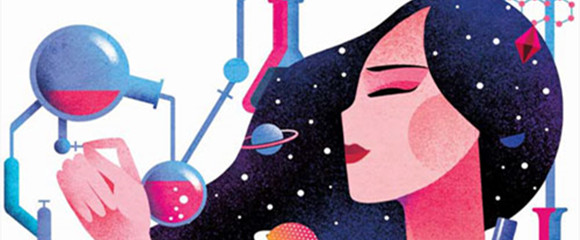
|
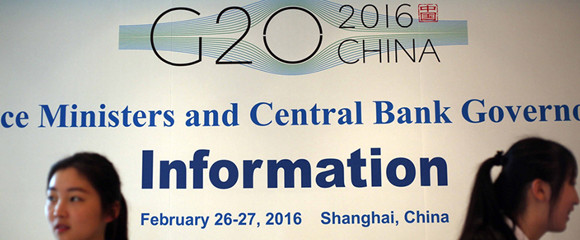
|
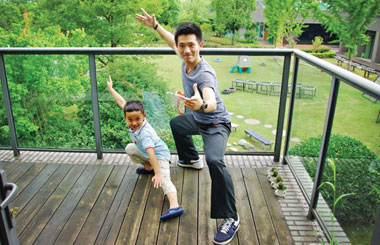
|
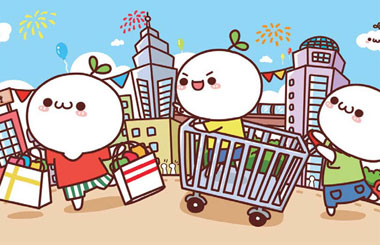
|

|
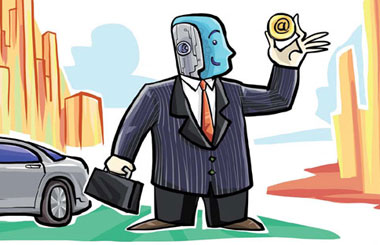
|







